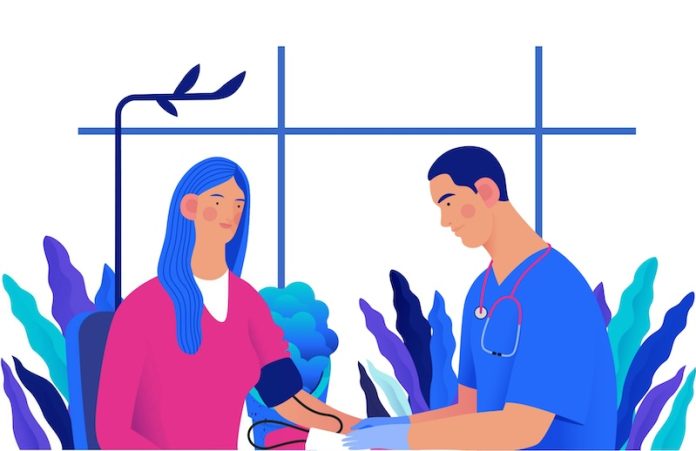
High blood pressure, or hypertension, is often called the “silent killer” because it typically has no symptoms but can lead to serious health problems like heart disease, stroke, and kidney failure.
Most people can manage their blood pressure with lifestyle changes and medications.
However, some find their blood pressure remains high despite trying multiple treatments. This condition is known as resistant hypertension.
This review explores the treatment options for resistant high blood pressure, emphasizing the latest research and explained in clear, simple terms.
Resistant hypertension means that a person’s blood pressure remains above the target level despite using at least three different types of blood pressure-lowering medications, including a diuretic.
It’s important for these individuals because uncontrolled high blood pressure increases the risk of serious health issues. Thankfully, there are strategies and treatments available that can help.
Firstly, it’s crucial to re-evaluate the basics. Doctors often reassess the diagnosis to confirm that a patient truly has resistant hypertension.
This includes checking if the medications are being taken as prescribed, if other medicines or supplements could be interfering with blood pressure drugs, and if lifestyle factors like diet and exercise need more attention.
Sometimes, improving adherence to medication schedules and making further lifestyle adjustments can make a significant difference.
Beyond these initial checks, additional medications might be tried. Adding a different class of blood pressure medication, such as a mineralocorticoid receptor antagonist (MRA), has shown effectiveness in research for controlling resistant hypertension.
These drugs help the body get rid of extra salt and water, which can lower blood pressure. Studies have demonstrated that adding an MRA can significantly reduce blood pressure in people with resistant hypertension.
Another option is to optimize diuretic therapy. Sometimes, switching the type of diuretic or adjusting the dosage can be effective. Diuretics help the kidneys remove excess fluid from the body, which lowers blood pressure.
For some patients, especially those with kidney issues or high sodium levels, this adjustment in diuretic therapy can be particularly beneficial.
For those who still struggle with high blood pressure after trying multiple drug treatments, device-based therapies might be considered. One of the most studied is renal denervation.
This procedure involves using radiofrequency energy to disable nerves around the kidneys that contribute to high blood pressure. Recent trials have shown promising results, with significant reductions in blood pressure for patients who underwent this procedure.
Baroreflex activation therapy is another device-based treatment for resistant hypertension. It involves implanting a device under the skin that stimulates the baroreceptors (pressure sensors) in the carotid artery.
This stimulation helps relax blood vessels and slow the heart rate, thereby lowering blood pressure. Clinical studies have shown that this therapy can effectively reduce blood pressure in patients with resistant hypertension.
Despite these options, it’s important to continue researching and understanding why some individuals have resistant hypertension.
Identifying underlying causes such as sleep apnea, hormonal imbalances, or kidney problems is crucial. Addressing these underlying issues can often help in managing resistant hypertension more effectively.
In conclusion, managing resistant high blood pressure requires a comprehensive approach that includes reassessing medication adherence, optimizing drug treatment, considering advanced therapies like renal denervation or baroreflex activation, and addressing any underlying conditions.
With these strategies, many patients can achieve better blood pressure control, significantly reducing their risk of health complications. This area of healthcare continues to evolve, offering new hope to those affected by this challenging condition.
If you care about blood pressure, please read studies about unhealthy habits that could increase high blood pressure risk, and people with severe high blood pressure should reduce coffee intake.
For more information about blood pressure, please see recent studies that early time-restricted eating could help improve blood pressure, and results showing plant-based foods could benefit people with high blood pressure.
Copyright © 2024 Knowridge Science Report. All rights reserved.



